In my family stoicism was prized.
Being a highly sensitive, intense feeler, I had a lot of big emotions. When I cried, my mother told me to go to my room, which was like being quarantined, as if emotions were contagious. I was allowed to emerge when I had ‘pulled myself together’.
What did I do in my room? I can’t remember. Perhaps I cried myself out. Perhaps I hugged a toy or cuddled a cat. Perhaps I stuffed my feelings into the deep internal pockets of my unlovable self. I felt ashamed of my emotions and my body – they were weak, wilful, and unwelcome. I absorbed the notion that being human was deeply problematic, doubly so for being female, triply so for being different.
We weren’t a huggy, touchy-feely family. We kept our emotional and physical distance. We had an unwritten code of behaviour that was predicated on worries, stresses and fears.
My mother didn’t enquire as to my thoughts or opinions or beliefs or ideas or hopes and dreams. I wasn’t given choices. I was a follower and I did not question the status quo, at least not outwardly. Inwardly I felt something profound was missing but I couldn’t put my finger on it. I was sheltered, fed, clothed, educated, given opportunities and surrounded by family. I had nothing to complain about so why did I feel such deep malcontent?
I was a massive day dreamer and at night my dreams were vivid. I dreamt of escaping, hiding, flying, falling, getting trapped, finding myself naked in public, and running from monsters with claws and fangs and untold hungers in their untamed hearts. It never crossed my mind to share these night terrors or, for that matter, to share my day time terrors. Even the idea of sharing my internal life never crossed my mind. No one asked and no one cared. The external life of achievement and approval was all that mattered.
My mother idolised the 1930s movie star, John Wayne – nicknamed ‘The Duke’ – for his laconic stoicism. He reminded my mother of her beloved father who had died of a quick succession of strokes in his early forties. That tragic death before I was born had hung over our family like a dark, heavy cloud.
My maternal grandmother was stoic. Her Scottish heritage made her robust, but as she aged arthritis plagued her joints, angina plagued her heart, bitterness plagued her words, criticism plagued her relationships, fat plagued her hips, varicose veins plagued her legs, and dementia plagued her mind. My mother was devoted to my difficult grandmother until the end of her long life.
I can’t recall seeing my mother touch her mother. I suppose my mother kissed her mother’s cheek. I never touched my grandmother apart from the obligatory kiss on the cheek. My mother asked me to kiss her cheek when she dropped me off at school.
If my mother referred to love, she’d say that she loved both her daughters in equal measure. I wondered if this was true. Surely it was natural to feel more of an affinity towards one child than another. I suspected that my sister was the apple of my mother’s eye and I was her rotten apple with all my ‘too muchness’ and ‘not enough-ness’.
Perhaps my intense emotional life exhausted my mother who was also highly sensitive. Like an imploding star her anger could be directed inwardly. When it was directed outwardly, it was a category five cyclone. She was deeply critical and at the same time uncannily perceptive. When she couldn’t say ‘no’, she had meltdowns behind closed doors. She needed reassuring one minute and in the next she was asserting control. She was complex, contradictory, confounding. Her moods changed like the wind, so it was best to walk on eggshells.
Stoicism may have been prized by my mother, but it wasn’t her modus operandi. Perhaps it was an ideal she aspired to. Perhaps if she’d married a man like John Wayne it would have made her happy. Perhaps her own dream life had been perpetually thwarted.
My mother’s parenting style was ‘authoritarian’. If you’re interested in finding out more about parenting styles, particularly the effects on gifted children, there’s a link to educator Deborah Ruf’s research in the resources section below.
A dear friend sent me a great article about controlling and facilitative parenting, and you can also find that link in the resources section below.
My mother was exactly as Ellen D. Fiedler describes in her book, Bright Adults: Uniqueness and Belonging across the Lifespan (2015). She was never encouraged as a child, never seen, never developed. The inklings of her heart were never explored. Her desires were cannibalised by a difficult parental dynamic that involved a volatile mix of alcoholism, narcissism and PTSD. Then as a married woman, my mother channelled her thwarted ambitions into her children. In other words, she lived through my sister and me. My mother gave us the opportunities she never had so that we could shine, but what about the inklings of our own hearts?
Provided with useful resources, guidance and encouragement, my mother could have run a corporation with her hands tied behind her back or, at the very least, fulfilled her ambition to be a veterinarian. Such was her potential, her energy, drive, charisma, care for animals, and acute grasp of injustice.
When I wasn’t on the busy treadmill of school, music lessons, sporting commitments, drama classes and church attendance, I secretly wrote a story under my ‘cloak of invisibility’. As a writer, it didn’t matter if I was successful or not. I didn’t have to win love or approval or be anyone other than myself. I let down my guard and escaped my troubles simply by putting pen to paper. I slowed down and accessed flow states. Hours passed in minutes.
Here's a quote by Mihaly Csikzentmihalyi from his book, Flow: The Psychology of Optimal Experience (2008), ‘One of the most frequently mentioned dimensions of the flow experience is that, while it lasts, one is able to forget all the unpleasant aspects of life.’
Flying under the radar, I wrote in my bedroom pretending to do homework. This duplicity was an achievement unto itself given the lack of privacy in our modest home. The only truly private space was the toilet where my father spent hours reading the newspaper.
I obsessively wrote one story, deleting and adding and improving it. I covered hundreds if not thousands of A4 sheets of printer paper with my cramped, feverish handwriting. I fastidiously hid these written pages amid the reams of blank pages in the desk that my father had fashioned from an old wooden buffet. Fortunately I had an endless supply of paper as my father worked as a technician for a photocopy company.
My story’s main character was Karla who was shipwrecked on a deserted island. Here’s a segment of my writing, taken from my autoethnography. It isn’t especially original:
‘Karla constructed a grass hut like those on the TV sitcom, Gilligan’s Island; she ate coconuts and pineapples that magically dropped from trees; she made ill-fitting garments out of woven palm leaves; she built fires and searched for passing ships; she battled storms and earthquakes, hunger and thirst, loneliness and apathy… Every time I wrote about Karla all the major chords vibrated through my body. Rays of light poured from my limbs, a litany of warmth and colour and feelings I could not name.’
This is an edited fragment of Karla’s story…
Karla stumbled on the heavy undergrowth of the rainforest, her feet and legs cut and bruised. Her arms were lacerated and bloody from fending off branches. She was aware of her tattered clothes, the redness of her burnt skin, the way light pierced the canopy above her. She was lost but did it matter? She listened for the sound of water, hard to distinguish amid the chatter of birds. A waterfall. When she found the crystal-clear lake, she fell into the water, gulping and flailing and crying.
Sometimes I tried to get Karla off the island. I summoned a rescuer, but something always went wrong. I made her build rafts out of reeds and branches, but they broke apart not far from the shore. Poor Karla. How isolated, how hard, how tenuous her existence.
Writing about Karla somehow made my life more tenable. Pain was muted through the act of storytelling or transmuted by giving form to pain. How many times have you heard that storytelling can literally save lives or save someone’s mental or emotional health? Karla’s story was a lifeline through the confusion, the misunderstandings, the blind alleys and dead ends, the search for meaning and the existential questions that accompanied it. Why was I here? Could I escape? What did the future hold? Would life get any better? Was someone going to save me?
Karla’s story – my story – reminds me of Simon and Garfunkel’s 1960s song … I am alone… I am a rock, I am an island… I build walls, a fortress deep and mighty that none may penetrate… I touch no-one and no-one touches me…
And then those poignant words that pierce the heart at the end of the song, And a rock feels no pain and an island never cries.
At school, my creative essays received high marks and I studied English as a subject at matriculation level. I yearned to study English literature at university but, yet again, I succumbed to short-sightedness and external pressure. I’ve so much to tell you about this next phase of my life.
For now, I’ll leave you with this beautiful Khalil Gibran quote…
I deeply appreciate you for joining me on this journey. Your company means the world.
With love,
Lil X
PS Thank you so much for your likes and comments! It’s such a joy to receive feedback. I’ll always read and respond to comments. A warm welcome to those who have recently subscribed. Huge thanks to my paid subscribers. Have a wonderful week until next time!
Resources:
Link to a research article about shame and its relationship to trauma and post-trauma disorders, advocating for shame-sensitive approaches in therapeutic settings: https://www.nature.com/articles/s41599-022-01227-z
Link to a research article about authoritarian and facilitating parenting styles: https://www.frontiersin.org/journals/psychology/articles/10.3389/fpsyg.2019.01041/full
Link to parenting style research by educator Deborah Ruf:


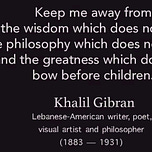




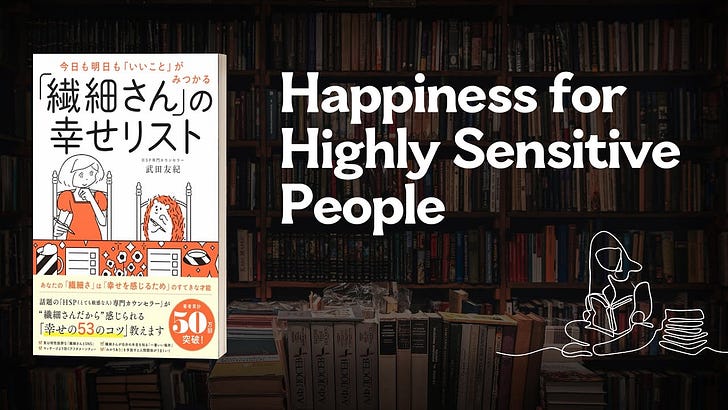
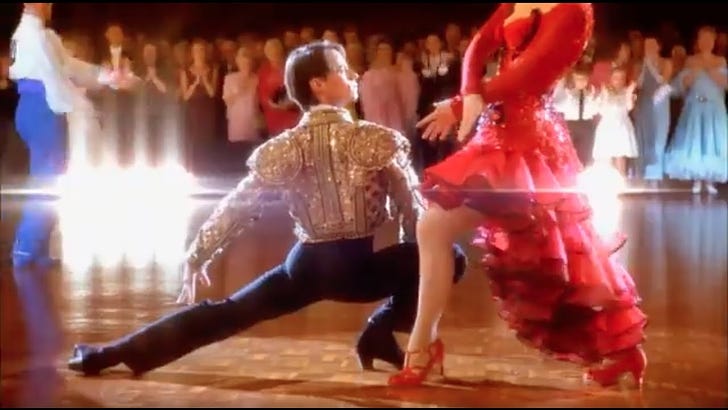
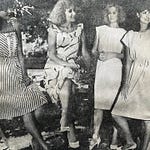
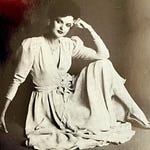

Reflections on Giftedness (Part Two)